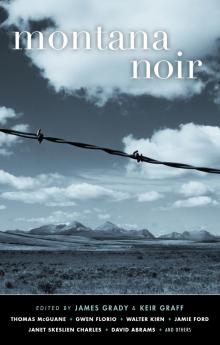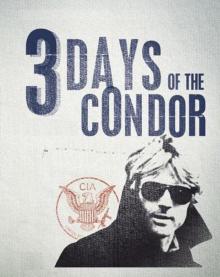- Home
- James Grady
This Given Sky
This Given Sky Read online
This Given Sky
James Grady
A MysteriousPress.com
Open Road Integrated Media ebook
A full moon watched the white rental car Jake drove north toward his hometown of Shelby, Montana, eighty-seven miles and maybe a few killings beyond the airport where he’d landed in a jetliner from the real world.
The empty highway hummed under the tires. He longed to be piloting a mail plane in the star-shot darkness above this pine deodorant–scented car. Instead of the hum of this road home, up there he’d hear the roar of twin propellers, smell stale sweat from the cargo crew who’d loaded the plane with mail sacks full of due bills and catalogue dreams. Up there, he’d fly from a precise beginning to a predictable end.
On this road, in April, 2010, he had less than an hour left to drive.
They’re waiting for me.
The waiting started the last day of April, thirty-five years before, as helicopters lifted defeated Americans off a roof in Vietnam and ten-year-old Jake stood alone in a graveled Shelby alley alongside a scruffy white house, waiting for Steve to hurry up and finish lunch, come outside so they could do what they had to do with Thel, get back to school and not get in . . .
Steve yelling: “Don’t you hurt her!”
Never can remember running inside that house.
Ghosts filled Jake’s headlights.
He saw Steve’s mom cowering on the couch as she tried to shield Steve’s little sister Jenny. In front of them, boyhood fists clenched toward a raging bear of a man, Steve yelled: “Told you don’t hurt them no more!”
The woman said: “Please Harley! I’ll be better! You’ll see you’ll . . .”
She blinked at Jake standing in the doorway from the kitchen.
Bear Man said: “Who the hell are you?”
Words tumbled out of Jake: “I came for Steve.”
“What the hell’re you holding?”
Even Jake looked at the black thing clutched in his right fist.
“You gonna cut me with an itty-bitty plastic knife?”
Grabbed from next to the ketchup bottle, sack of white bread and pack of bologna on the kitchen table.
Bear Man yelled: “What’ll your old man say ’bout you pullin’ this?”
“Tell him!”
The universe froze between tick and tock for five people hidden inside that peeling white paint house.
Bear Man grabbed keys off a table and stormed out the front door.
Steve peered out the window as a car roared away.
He sent a smile to his mother and sister on the couch. “The big sample case, plus his hung-up suit bag. Probably gone a couple days.”
Sister Jenny stared off into nowhere like a movie zombie.
His mom sighed. Glanced at Jake and the black plastic knife.
“He won’t say nothing,” promised her son.
“I . . . well . . . every family . . .” Her trembling finger drew a smile on her daughter’s face. “Got to get to work, and Jenny . . . and Steve, you . . . .”
“I got me, mom.”
Steve faced Jake. They’d gone to the same school for five years, but Jake hung with the sons of adults his parents knew—though, until moments before, Jake had thought that everyone knew everybody in their town of 2,900 people. He and Steve only walked home for lunch together that noon because of what they had to do for Thel. Sure, they were friends, but now . . . .
“Come on,” said Steve.
Jake left the black plastic knife on the kitchen table.
“Don’t tell nobody,” said Steve as they stepped into April sunlight.
“I won’t.” Jake never broke that promise. “Who was that guy?”
“The man my mom married.”
They ran down the alley side by side.
“We gotta go to Thel’s!” yelled Jake.
Their formation banked that direction like two sparrows.
Steve said: “So what should I get him for Father’s Day?”
Then he laughed. So Jake did, too. On they ran.
Necessity had already launched Thel to school. Jake and Steve got detention for being late and not helping Thel carry her science project on Rocks of Our Town to school, even though Thel told the teacher: “It was my fault. They thought I was waiting for them.”
Jake told his parents only what he had to about getting detention. He and Steve told each other that Thel trying to save them was cool. For a girl.
On her wedding day, Thel realized: I was never a girl.
She’d been just a friend to Jake and Steve, a buddy with breasts but nothing more. Thel kept it that way. Come high school, she made Nick Robbins her official hook-up after he asked if they could be “kinda together” until one of them found “somebody real.” That’s when she knew he was gay, would hide until years and miles buffered him from their wind-blown prairie town. They kissed only in public. He needed her. She used him and thus ran with her guys, Steve and Jake, free from all that romance and sex stuff.
Her dad loved it when the posse hung out at her house. They never hung out at Steve’s—or Jake’s, where Everything Was Just So. The dad did his part. The mom did hers. So did Only Child Jake. Dinner was On Time. Everything had to be just so, or the universe would explode.
Jake glided amidst those infinite possibilities of utter destruction. He got stoned, preferred grass to beer, could have had straight A’s but didn’t. Was on the football team, a free safety perched back from the melee all by himself, the last chance to stop the other guys from scoring. Steve played tight end, blocked for ball-carrying teammates or leapt to snag a pass and get tackled before his cleats kissed the grass. Steve and Jake spent so much time together fools might have wondered if they were gay, but Bonnie Ager told Thel that that sure—sure—wasn’t true about Jake, knowledge Thel never ever questioned. She knew three girls who bragged about scoring with Steve.
Thel told the guys how her father had quit his office job in Montana’s beautiful pine mountains city of Libby to inherit his father-in-law’s auto parts store in her mom’s stark high plains hometown of Shelby. One Tuesday, when Thel was eight, her mom stood up from the lunch table, said: “No more.” Left for someplace exotic like Spokane or Seattle.
Steve said: “Why’d she go and do that to you?”
Thel shrugged.
“I get it,” said Jake.
Then and there Thel just knew he knew the ache in her every step.
Because he was her friend. What more could she want?
One May Friday afternoon in their junior year, Jake met Thel at her father’s store as UPS dropped off a box of repair parts for the local star from high school in the 1960s who’d gone on to create a cargo airline business and flown back for a visit in his World War II fighter plane.
Thel’s father shuffled to the counter to sign for the box while she finished his weekly accounts like she did every Friday. Jake was supposed to drive her home to fix dinner for her dad, then be in his own house to eat at precisely six o’clock. Steve was staying close to his sis and mom because Bear Man was in town. Thel figured that, after dinner, she and Jake would hang out in her basement. That’s all, just hang, why would we do anything else.
Her dad coughed from allergies or whatever as the deliveryman handed him the box of parts. Mumbled how he oughta get it to that guy.
Jake said: “We’ll take it up to the airport.”
“Well,” noted Thel’s dad, “I do got other work that needs doing.”
“Yeah.” Jake knew that wasn’t the whole truth but it had to be said.
Give people the space to stand in whatever lie keeps them going.
Or their universe will explode.
Jake drove Thel out of town to the airstrip where two aluminum hangers and a green concrete
blockhouse office sat on a plateau of yellow rolling plains cupped under a thousand-mile blue sky. On the paved runway, a big man stood by a single propeller silver warplane.
“Has to be the guy,” Jake told Thel.
The big man beside the silver warplane had been a boxer. Kept his build, his unscrambled brains, his fighter’s eyes.
Even as Jake felt Thel agitating to get home for her dad, even though he knew he’d be late for dinner and thus might trigger Armageddon, Jake offered to help the man with his repairs and then roll the plane into the hangar. Jake gave Thel his keys to drive herself home, asked her to call his folks, tell them he’d grab a burger after he got his car back from her.
Jake heard Thel drive away. Bent to help the boxer fix a wheel.
“Could fly without it,” said the boxer who loved and fathered three daughters, “but taking off and landing would be a bitch.”
As they finished, the boxer noted that Jake had sure earned a twenty-dollar tip.
Don’t pay me, insisted Jake.
The boxer gave him a nod like maybe he’d been looking for that answer. Turned toward the sun burning above the horizon fifty miles away.
“Got some daylight left,” he said. “This plane’s lighter to push into the hangar when it’s about outta fuel. It’s got half a tank now.”
The fighter plane was a Mustang P-51 two-seat trainer. The boxer put Jake in the back seat and strapped him into a parachute.
Gene Mallette
Taking off felt like rocketing backward and forward at the same time—whoosh! Floating. Soaring. Aware that the tiny box you’re in is hot as an oven. Smells like fuel, your own baking body. The propeller shimmered beyond the radio headset-clasped skull of the boxer/pilot. The engine roared so loud Jake could only hear him talk through his own set of earphones.
And, like that, Jake found himself beyond any fear of knowing he was no fooling dead if something went wrong. Forget the parachute, he’d choose to ride this warbird 185 miles per hour straight into the ground. If the engine stalled. Caught fire. If they lost the air beneath their wings in an acrobatic maneuver. If a freak downdraft hit them. If. But there were no ifs: only is. He was here. Untouchable and touching nothing but a fragile plane and the truths of physics. And the boxer/pilot, the man with sure hands and feet on the controls, risked this given sky with wondrous freedom.
For the last few weeks of that junior year, Jake hit schoolwork big time, upped that effort in his senior year—at least until he won an Air Force ROTC scholarship to the state university at Missoula.
Thel wanted to go there, too, because Missoula was the biggest state university, in a mountain valley 233 miles away from Shelby, more exotic, had more classes—obviously there were lots of reasons to go where Jake went, but with what she and her dad could scrape up plus needing to come home weekends to help him, she settled for the smaller teacher and vo/tech/business training Northern University only 103 miles east of Shelby in Havre, a flat landscape burg barely three times Shelby’s size.
Steve’s mom finally took Bear Man to court, got a divorce and a lump of cash before he skipped out of alimony collection jurisdiction, so Steve figured he could student-loan and sweat-labor his way through Havre U, too. Figured on being a teacher: “Figure kids can learn from my mistakes.”
After high school graduation, Jake landed a summer job as a sledge-swinging gandy dancer for the trains that had birthed Shelby when railroad tycoons lobbied homesteading laws through Congress. The railroads got free land plus mineral, timber, and water rights so they could service dreamers who went west to homestead earth that the railroads’ ads claimed could be worked to flow milk, honey, and freedom. Homesteaders found windblown prairie, scant rain, forty-degree blizzards, and rattlesnakes.
Grady
Steve landed a summer job as a laborer for the city road crew.
And because of a new Equal Employment Opportunity Act, so did Thel, where she became the first “girl” to shovel and jackhammer Shelby’s streets. Then she’d spend an hour or so after dinner working in her dad’s closed store before the posse picked her up to cruise through velvet summer nights, get stoned, listen to Bruce Springsteen, and talk about escaping from their Montana hometown to someplace cool like New Jersey.
Second day on their city job, Thel and Steve worked a patch crew with thirty-something Warren. As the official adult, Warren drove the truck while they swept potholes, painted them with black oil, shoveled in blacktop, shaped a patch for the truck to roll over and pack down.
Thel was tossing a shovelful of crumbly blacktop mix into a hole when Warren rubbed his groin against her bent-over blue-jeaned buttocks. She whirled and smacked him in the chest with the flat blade of her shovel.
Warren plopped ass-down on the road.
Steve said: “You got two of us.”
Warren sat there for a dozen heartbeats. Got up.
Said nothing with his mouth.
Come five o’clock, the dozen members of the city crew walked out of the shop/office to go home in their cars and pickups racked with rifles.
Saw Jake and Thel’s official hook up Nick leaning against the hood of her family car. Nick wore the white shirt and tie from his summer job at the last pharmacy in Shelby. Jake was still in work boots, black T-shirt and blue jeans covered in grime from his dawn to mid-afternoon of lifting steel rails before he got the lunchtime note Steve dropped off at the train depot.
Jake and Nick weren’t smiling.
Everyone saw everybody and they all knew what was what.
Two days later, the street foreman found a reason to send Warren down the line. He signed on at the slaughterhouse east of town, lasted there only until the leaves on the trees turned golden and russet and brown, so not long after Jake, Steve, and Thel left for college, he was gone from Shelby, too; nobody knew where and nobody cared.
After a lifetime of navigating the infinite fog of total annihilation, Jake breezed through Air Force ROTC’s explicit dos and don’ts enforced by blue-uniformed mentors with their authority ranked by visible insignia. He took classes they approved, surprised himself by excelling in physics.
Home from the university for Christmas his junior year, Jake sat on a stool beside Steve in Shelby’s “younger crowd” bar while they waited for Thel, said: “Apparently I have a knack for grasping how the universe works.”
“Now if only you knew why,” said Steve.
They laughed.
Jake said: “You and Thel hang out?”
Steve took a pull off his beer. Stared into the bar mirror.
Answered: “Sure, but she’s back here weekends to help her dad.”
“So . . . she got somebody? I mean . . .”
“Some guy in the high tech program comes ’round when she says so.”
Jake drank from his beer bottle.
Looked at the wall clock above the bar mirror.
Said: “Do you think she’s going to show up?”
Steve said: “Where else is she going to go?”
The hospital.
Where doctors discovered that living in Libby near a mine and mills that produced asbestos-contaminated vermiculite two decades before had corroded her collapsed father’s lungs. They stabilized him. Next day, Jake and Steve helped her bring him home, then drove to Havre to get her stuff. Everyone talked about how her dropping out of college to care for her father and run the auto parts store with him was “a temporary deal.”
Jake went back to his university in Missoula.
Steve went back to school in Havre. Dropped out two weeks later.
“Figure I don’t want to make kids color inside the lines so their schools can win more tax bucks,” he told Jake. “The city crew street foreman is retiring and giving me his job ’cause I’m not afraid of computers, plus I know their broke-ass street equipment. As hard as I fought to stay alive in Shelby, figure it makes no sense to start over somewhere else.”
Jake came back to Shelby on university breaks. They all hung out. He didn’t h
ave a chance to come home and see them after he graduated the next year and shipped out to earn his Air Force pilot wings.
Grady
Shelby surrounded Thel and her father with the kindness that redeems small towns. People shopped at their auto parts store whenever they could. Rides appeared when her dad needed to go to the hospital or even down to big city specialists eighty-seven miles away in Great Falls while Thel minded the store. A gentle and true Christian manager at the four-county electric co-op walked into the auto parts store with a part-time data management job for Thel that he could have parceled out among the co-op’s staff.
She and her father held on to the store for three years until nationally franchised stores UPS’d parts to Shelby cheaper than Thel could buy them wholesale. By then, her dad could barely cough his way through a day of work. They sold their inventory for enough money to clear the back rent on the store and the house, where her dad “took to bed.”
A gray-haired legal secretary who’d never gotten her wish to date that sick man came over one night and worked magic to put as much of their debt as she could solely in his name and neither she nor Thel discussed why.
The co-op took her on full time.
“Now you’ve got health insurance for at least you,” said the manager when he drove over to the house to pay his respects to her father and give Thel the good news. “Plus you start qualifying for our pension plan.”
She said thanks. Walked him to his car. Watched him drive away. Walked around the outside of this house they’d paid enough rent for to buy. Went to the alley with its garbage cans beside an ash tree. Threw up. Went in the house, gave dad his medicine. Monday morning, went to work at the co-op in new grocery store pantyhose and a neighbor’s hand-me-down dress.
Steve stayed in her landscape.
Being street boss for the city crew meant Steve was out there—rain, snow, heat, blue hard hat, work shirts, jeans and boots, fixing roads, broken water pipes, clogged sewers, never asking a worker to do what he wouldn’t.
Thel’d see him and wave; hear his laughter above the rumble of machinery and smile. His mom “up and found a real guy,” moved out of town. His sister Jenny fled, too, married a much older man with two kids she adored and sometimes managed to give smiles.

 The Short Takes
The Short Takes Montana Noir
Montana Noir Nature of the Game
Nature of the Game Condor in the Stacks
Condor in the Stacks This Given Sky
This Given Sky Three Days of the Condor
Three Days of the Condor Shadow of the Condor
Shadow of the Condor Mad Dogs
Mad Dogs Six Days of the Condor
Six Days of the Condor Next Day of the Condor
Next Day of the Condor